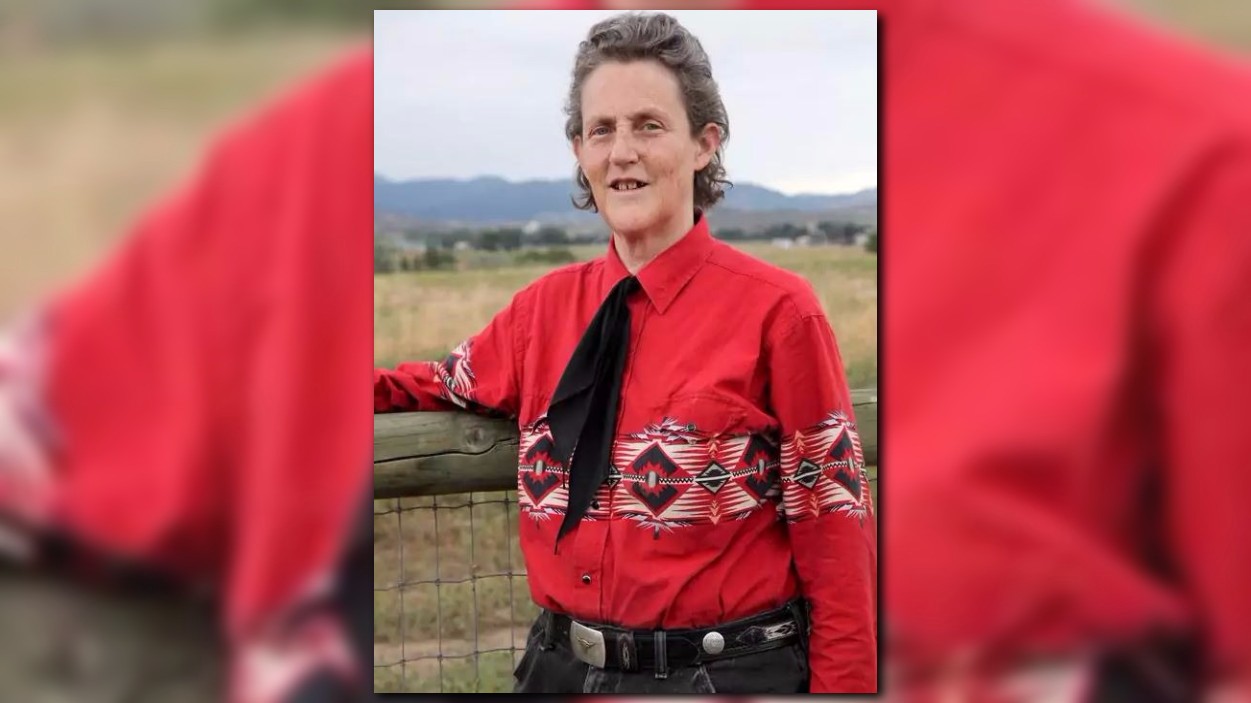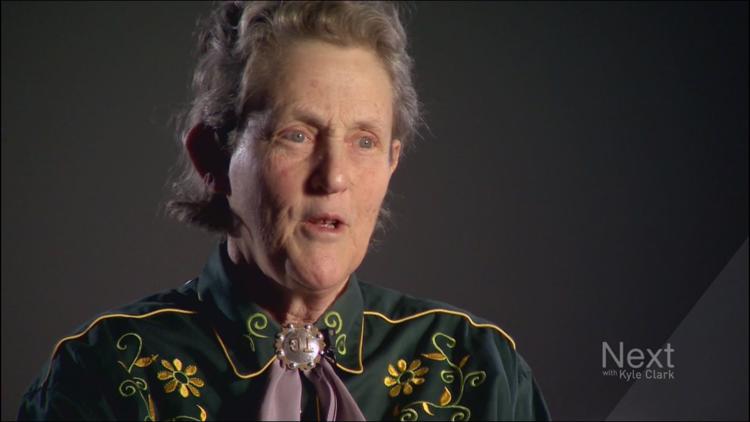Temple Grandin, a Colorado State University professor of animal sciences and spokesperson for autism, is one of 10 women in 2017 to be named to the National Women’s Hall of Fame.
"Oh, I was really excited. I couldn't believe it," Grandin said, donned in a green and marigold, custom made, CSU-themed blouse, during her sit-down interview with Next.
The organization describes the inductees' work as having changed the course of human history.
Grandin has been a professor of animal sciences for more than 20 years, and her contributions to the livestock industry include methods of humane slaughter that are now industry standard. Her work started in the cattle industry back in the 1970s.
"Being a woman in a man's world in the 70s was not easy. There was a scene in the HBO movie where they put bull testicles on my car. That actually did happen. And one of the things that kept motivating me is I wanted to prove I could design equipment, and I could do things. It was long, sustained hard work."

The HBO movie she refers to is the 2010 biopic titled for her, which tells the story of Grandin's efforts to change the way livestock is handled on ranches, all the while completing her degrees and struggling with the social challenges associated with autism. Grandin conquered those hurdles, and then some.
"I walked through the door. Some people are scared to walk through the door," she says. "A guy will take a job at the 60 percent level (of knowledge), but oftentimes a woman has to be at the 90 percent level."
Her unique success is in part thanks to the incredible way her brain operates. Grandin thinks in pictures. She sees thoughts in pictures. When she began working with livestock, she observed the way cattle behaved specifically based on what they see -- like a shadow, for example.
"You can learn (to think in pictures) somewhat. But think of it as a continuum. You can't get from one end of the continuum to the other. I'm never going to really be a mathematical thinker."
“Honoring Dr. Temple Grandin in this esteemed group of women not only speaks to the power of her research and advocacy, but also her impact as a role model for young women everywhere,” said CSU President Tony Frank in the press release. “Early in her career, her determination helped her break into what was a largely male-dominated animal production industry, and she continues to serve as an advocate for women in the sciences, for young people with autism, and for anyone unwilling to let artificial boundaries stand in the way of their personal and professional success.”
FULL INTERVIEW: Temple Grandin on thinking in pictures, her big break, her style
The National Women’s Hall of Fame was founded in 1969 and women named to it must be citizens of the U.S., through either birth or naturalization, and they must have made a contribution “of national or global importance and of enduring value."
Previous inductees to the Hall include Madeleine Albright, Louisa May Alcott, Maya Angelou, Susan B. Anthony, Hillary Rodham Clinton, Sylvia Earle, Ella Fitzgerald, Ruth Bader Ginsburg, Georgia O’Keefe, Rosa Parks, Sally Ride, Eleanor Roosevelt and Oprah Winfrey.
As previously reported, other inductees this year were Matilda Raffa Cuomo, Lorraine Hansberry, Victoria Jackson, Sherry Lansing, Clare Boothe Luce, Aimée Mullins, Carol Mutter, Dr. Janet Rowley, Alice Waters. The press release noted that the new inductees will be honored at the Hall’s biennial induction ceremony in September.
Grandin’s previous honors include Time magazine’s “100 Most Influential People in the World” in 2010 and an induction into the American Academy of Arts and Sciences in 2016, according to the press release.



